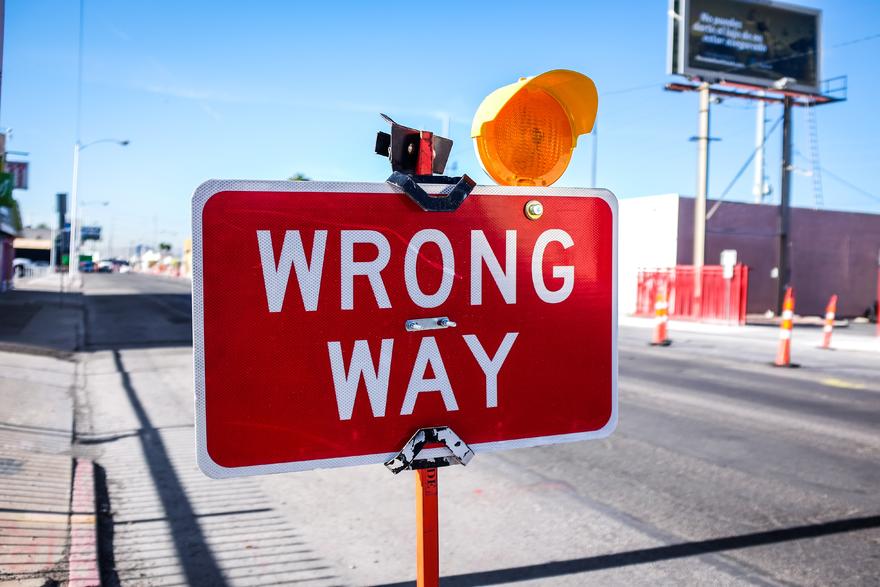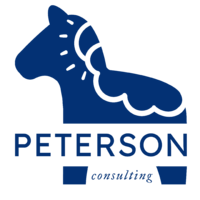
Hi, Emily Ann here. Please learn from my mistakes, so you don't make the same ones.
In this post, you'll hear two cautionary tales from my mistakes. Both stories underline the benefit that an entrepreneurial trauma survivor gains from creating evidence-based business protocols. This especially applies to testimonials, referrals & recommendations.
Want to practice what you're reading? There's a bunch of freely available Resources, Recommendations & Referrals! Plus, if you'd ever like support in picking the right service provider or technology for you and your business, I'd be happy to schedule a Meet-n-Greet with ya!
Before I began my journey of healing the trauma in my business, I made a lot of mistakes. Mistakes are part of life, they're part of learning. They're part of the human experience. Sometimes you do have to learn things the hard way, but whenever I can, I like to point out my own mistakes so that others can have an easier time. This is how we watch out for each other as trauma survivors.
Now I know that some folks swear by their gut instinct. More power to them, however that instinct doesn't equal a guarantee, especially for trauma survivors. For those of us who've already survived trauma, our internal gauge can get a little screwy. Many entrepreneurial trauma survivors learn the hard way, like I did, that trauma causes your business spidey-senses to not be as reliable as you'd like.
Trauma causes signals to get mixed neurological wires to cross. When a trauma survivor becomes "triggered" or their past trauma gets activated by a present-day happening, the same "level-headed" decisions are exponentially more difficult to make, perhaps impossible for your physiological and neurological mechanisms.
Understandably, trauma affects our decision-making skills as business owners.
We have more to gain than our trauma-free colleagues from establishing business protocols that are sourced externally using evidence-based methods. Creating external, evidence-based systems in our business ensures that we have a dependable system that does not rely on a faulty internal system thwarted by trauma. This is sorely needed when our trauma inevitably does become activated during a decision-making process.
Cautionary Tale #1: Create Evidence-Based Business Protocols
This means that we get to use our non-triggered, level-headed selves to establish systems, protocols, rules, and guidelines so that we can automatically have a reliable, trusted default for we do eventually become triggered at some point later down the road.
The good news: We can mitigate the need to constantly twist our trauma-selves into pretzels by creating new business practices that validate our instinctual, gut-level responses.
A perfect example of this is seen in two very different hiring experiences I had with publicists:
- The first publicist was working with me as a side-hustle in addition to her entry-level full-time public relations job. She came to me via a colleague's referral. She was extremely inexperienced and didn't know about my industry, but was hyper-efficient and regularly brought proof of that work regardless of whether media outlets accepted or rejected our pitches. We approached her position's objective as a collaborative project. She was willing to run with some of my off-the-wall ideas and challenge me on the ones that should've been challenged. ;-) Generally, our working relationship was that she would use me as a sounding board and then run off and work whatever magic she could with media and visibility skills.
- It was great and I ended up keeping her on retainer for twice as long as I originally anticipated because of the results she brought. I highly recommend her.
- The second publicist approached me after seeing me speak on a panel with one of his current clients at some industry conference. It was good timing because I was just about to start searching for a publicist for this different project. His current client was a mutual friend and colleague of mine. I hadn't spoken about publicity or publicists with my friend but I could also see a very long list of highly reputable previous clientele whose careers I admired on this publicists website. My thought was to trust the judgment of my friend and other admirable colleagues. This publicist was clearly experienced, knowledgeable in my industry, and confident that he could deliver. Hiring him was also four times more expensive and was a bad choice. He delivered ZERO results, was not responsive, couldn't identify any work he had completed, and ultimately I was forced to negotiate the termination of our contract and a refund on his retainer fees. Pretty sure that the negotiation process woke him wide awake because he seemed suddenly aware that "the emperor had no clothes" and he was that emperor.
- The whole experience was extremely costly (time, financial, emotional) and I highly do not recommend him.
The difference between them?
- The first publicist's referral came to me directly from a colleague, first-hand, unfiltered, straight to my email inbox. (It probably read something like "Hiring her was the best decision I've ever made. I'm so excited that you might work with her! She's wonderful!")
- The second publicist, referrals were assumptive, and based on my "seems like a good guy" vibe readings (not evidence-based). Any kind of referral I had was solely from other colleagues names who listed on this guy's website as previous clients. I didn't personally hear from any of those colleagues first-hand, I only saw the links to media spotlights that I assumed he had gathered for his clients.
Had I established an evidence-based hiring guideline, I would NOT have hired that second publicist.
How do I know this? Prior to negotiating the contract termination with the second publicist, I emailed and called all of the clients listed on his website who I knew personally. I asked them what it was like working with him, just to make sure that my experience was not out of character for him.
The ones who responded were eager to tell me how unpleased they were with his work. I found out that many of those media spotlights listed on his website were actually acquired by the clients themselves(!!!) He had slacked so badly during a crucial time in their product launches that they were forced to step in to do his job for him because they simply could not afford to drop that ball.
Lesson learned! Get first-person referrals or recommendations before hiring, not after. :-) One step better? Validate online testimonials!
Cautionary Tale #2: Validate Online Testimonials
I once received a discount on a certain someone's product to give a testimonial. What I did not know at the time, was that this product testimonial was given prematurely.
A year later, I got a Facebook message from an acquaintance who was considering this same product and saw my name, face, and testimonial on the sales page. They were curious to hear more about my experience but she and I were both disappointed because my experience with that product completely changed after I gave my testimonial. Furthermore, I was unaware that my likeness was still being used to promote their product.
So my lessons from ^that^ story were:
- It's okay to receive a discount for being someone's beta tester, but don't give the testimonial until fully completing your experience of a product.
- Don't be afraid to look someone up on social media to personally validate and confirm their testimonial. You might be doing them a favor by asking them about it!
Okay, now that I've aired all my dirty laundry for y'all, here's a list of... ;-)
4 things to consider before saying "yes" to a recommendation or referral.
1. Get first-person testimonials. Any business worth its weight in testimonials should be willing to accommodate a future customer communicating with a former customer. If they're unwilling to connect you with a former customer (red flag!), then you can still use the good ol' Goog to find unfiltered reviews or connect with a former customer via social media. (Even therapists or other HIIPA-service providers usually have a way around this!)
2. Not every suggestion or recommendation from someone else will fit your every need. Just because someone else is ranting and raving about another product or service provider, doesn't automatically mean it will work for you too. Of course you can take it at face-value, but you also get permission to explore or validate their recommendation to your own standards or qualifications.
3. It's often perfectly acceptable to order "off the menu." This applies to an app's pricing, a service provider's offerings, or customizing a tangible good. I learned this from my grandpa, who was an expert negotiator at garage sales, lol! He got some great deals by just asking "Is there anything else?" The worst that happened was someone would say "No." Speaking of...
4. "No" is a complete sentence. I am always a fan of encouraging the practice of using your autonomy, discernment, and personal judgment. Trauma survivors specifically get this encouragement from me because it reacquaints us with the skills we need to resolve our trauma. (hooray!) In most cases, if something or someone is not quite to your liking, you get to tell them "No." and no further explanation is necessary. period. end of story.
Remember that if you'd ever like to practice these considerations, there's a bunch of freely available Resources, Recommendations & Referrals! Plus, if you'd ever like support in picking the right service provider or technology for you and your business, I'd be happy to schedule a Meet-n-Greet with ya!

Comments